

Ceramic is a seamless EMR Fewer clicks and more time with patients
While EMRs have many tasks, Ceramic believes the most important is coordinating people and focus on patients. Ceramic prioritizes the user experience so that it is fast, straightforward, and easy to use from Day One.
Many EMRs suffer from several core issues —
Cluttered interfaces trying to cater to everyone all the time
This leads to cognitive overload and analysis paralysis, deepening burnoutForcing clinical teams to adapt their workflow to the software
Often preceded by many promises from eager sales teamsPainful integration of clinical, administrative, and RCM workflows
Often requiring several pieces of software, tab switching, and higher costsWe have researched these pain points over the past eight years. And we have worked with practicing clinicians to understand how those pain points impact their day-to-day work.
We designed the essential workflows clinicians use every day with practicing clinicians. Appointments, messages, tasks, documents, and patient charts. Workflows use consistent patterns, maintain patient context, and provide the information you need without overwhelming you.
Ceramic prioritizes intentional design: clean interfaces, adaptive workflows, and systems that learn from how you work. It is built to be simple by default but flexible enough to adapt as your needs evolve.
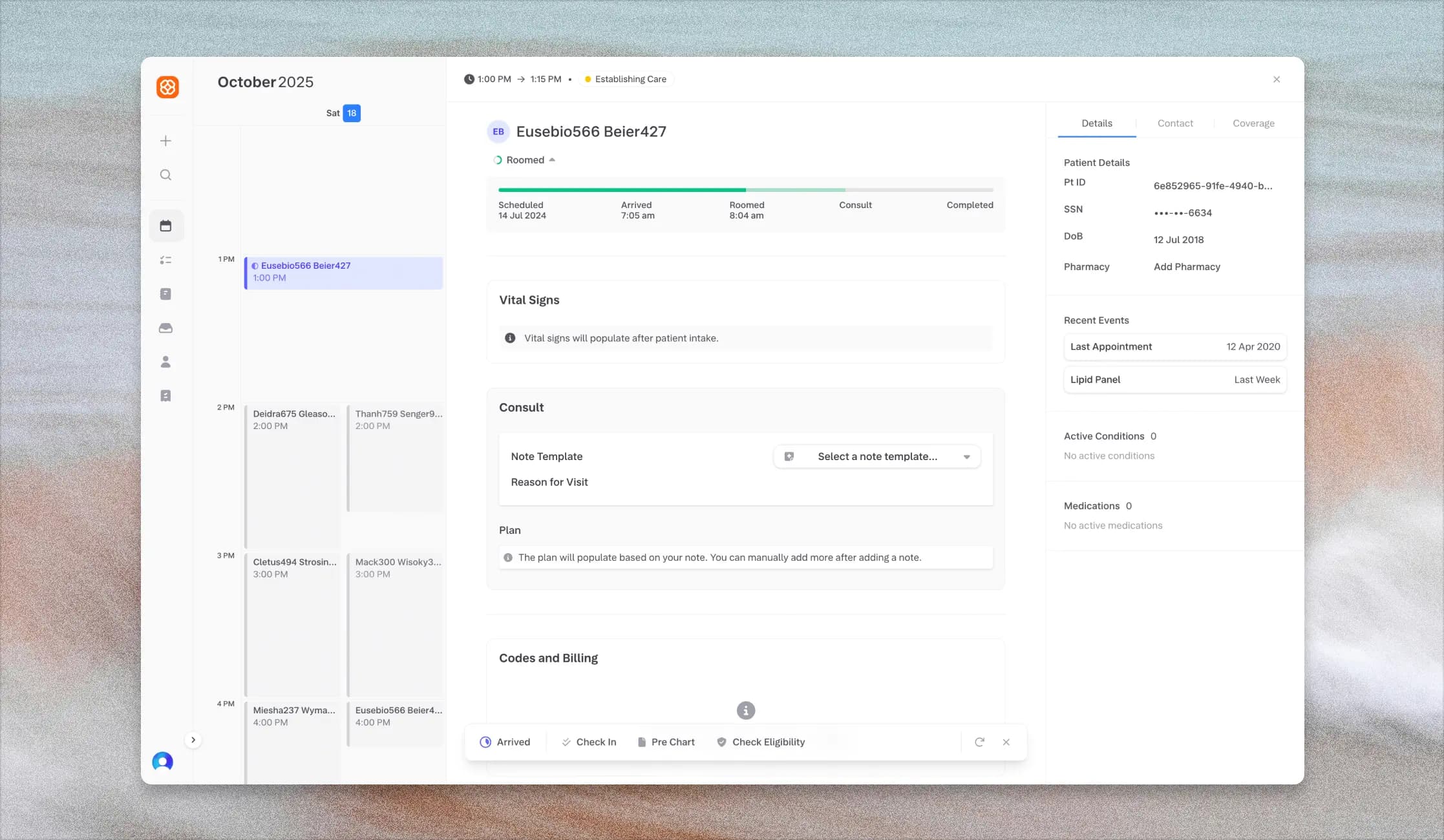
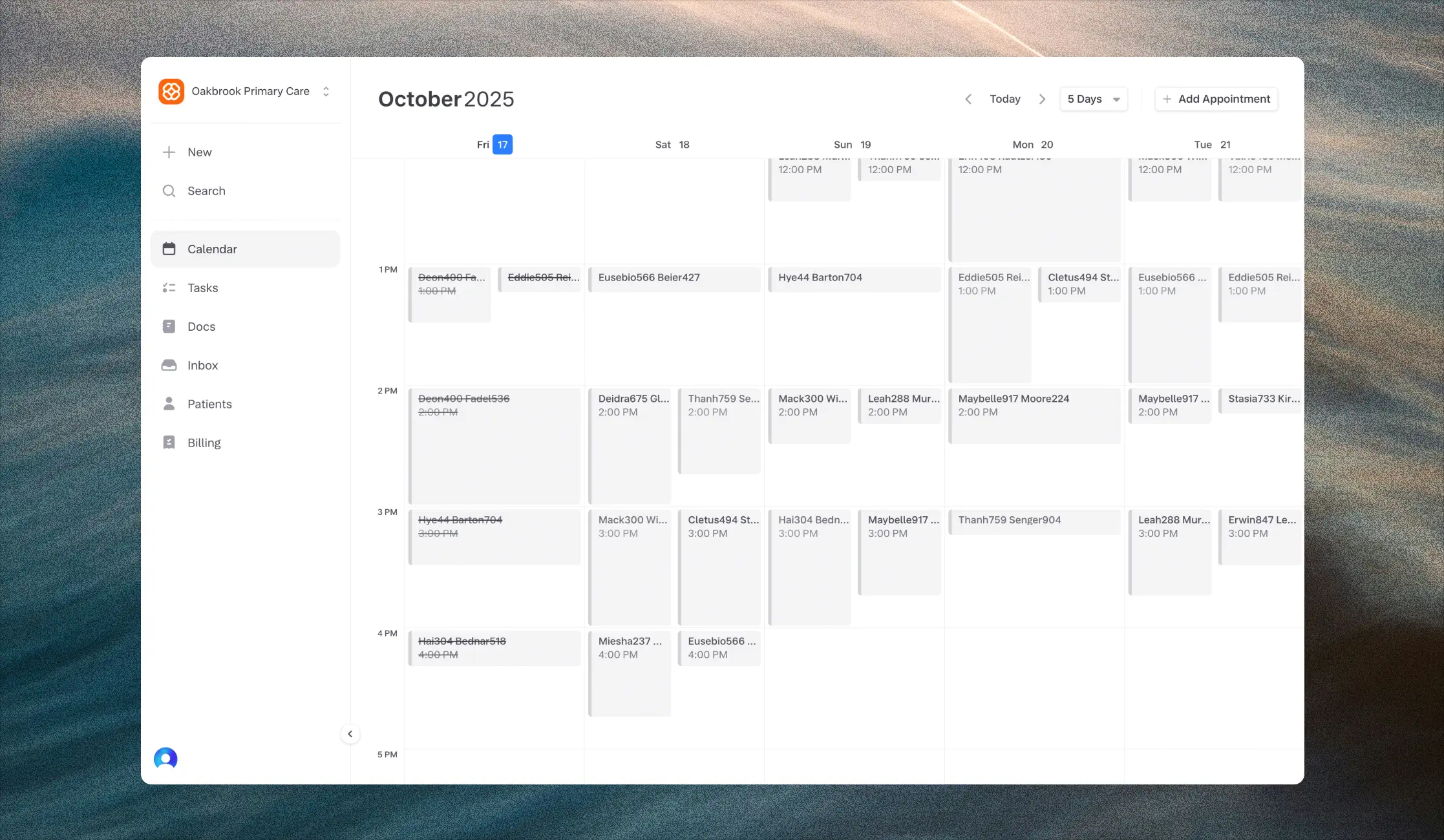
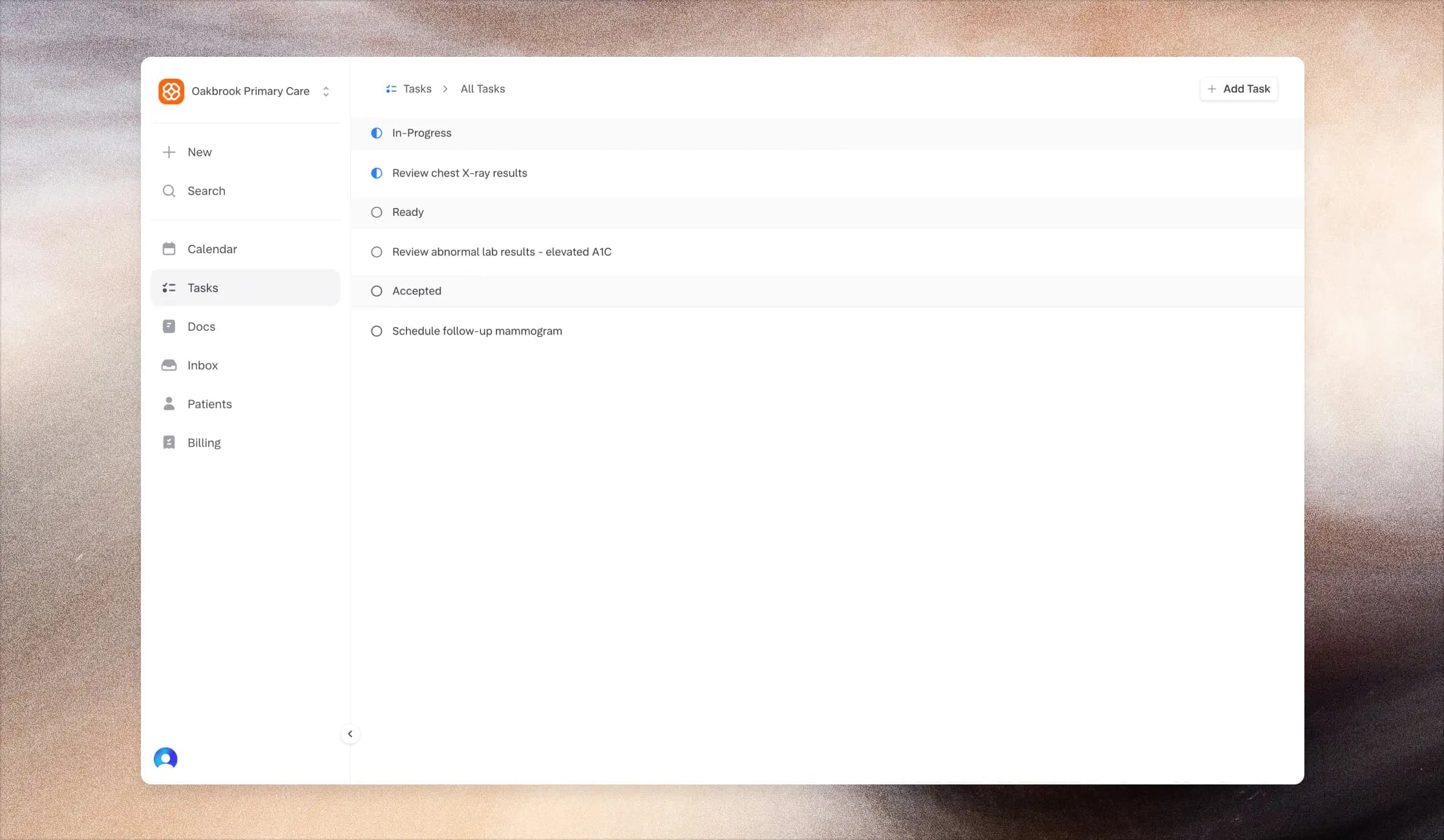
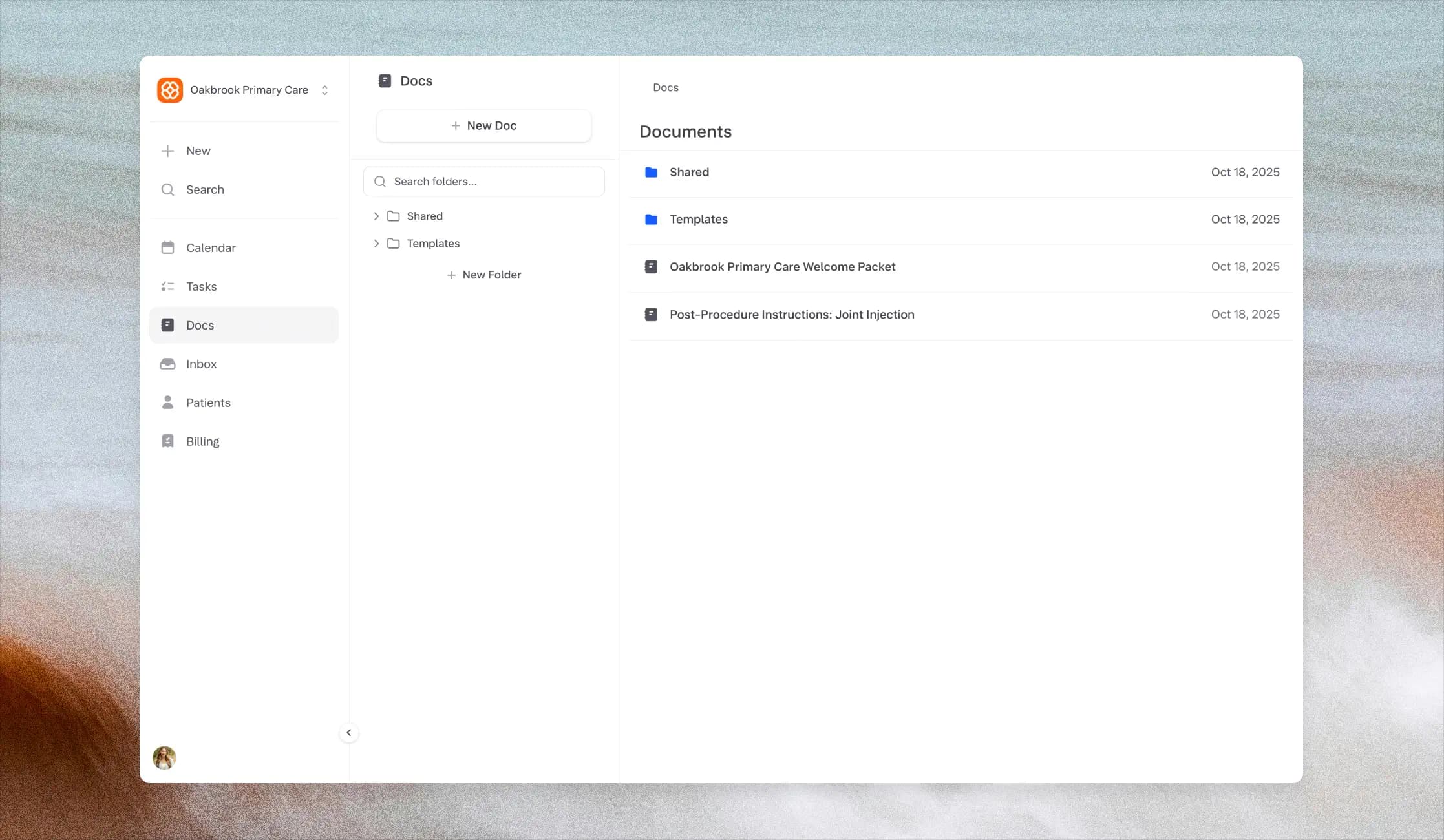
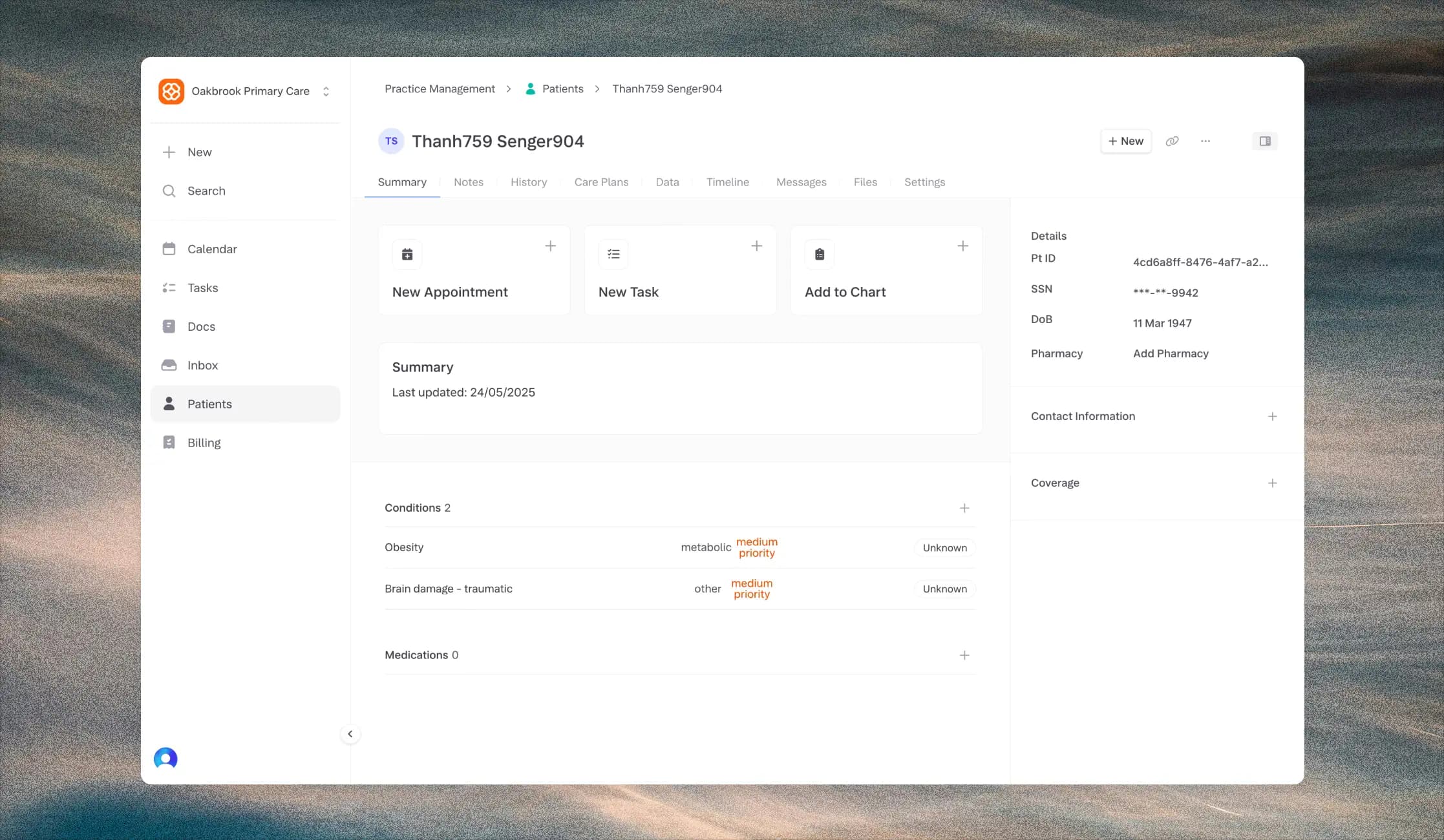
Appointments
A calendar built specifically for clinicians. Ceramic's calendar includes a schedule view for today's appointments enabling quick pre-charting and consistent appointment context, no matter who no-shows.
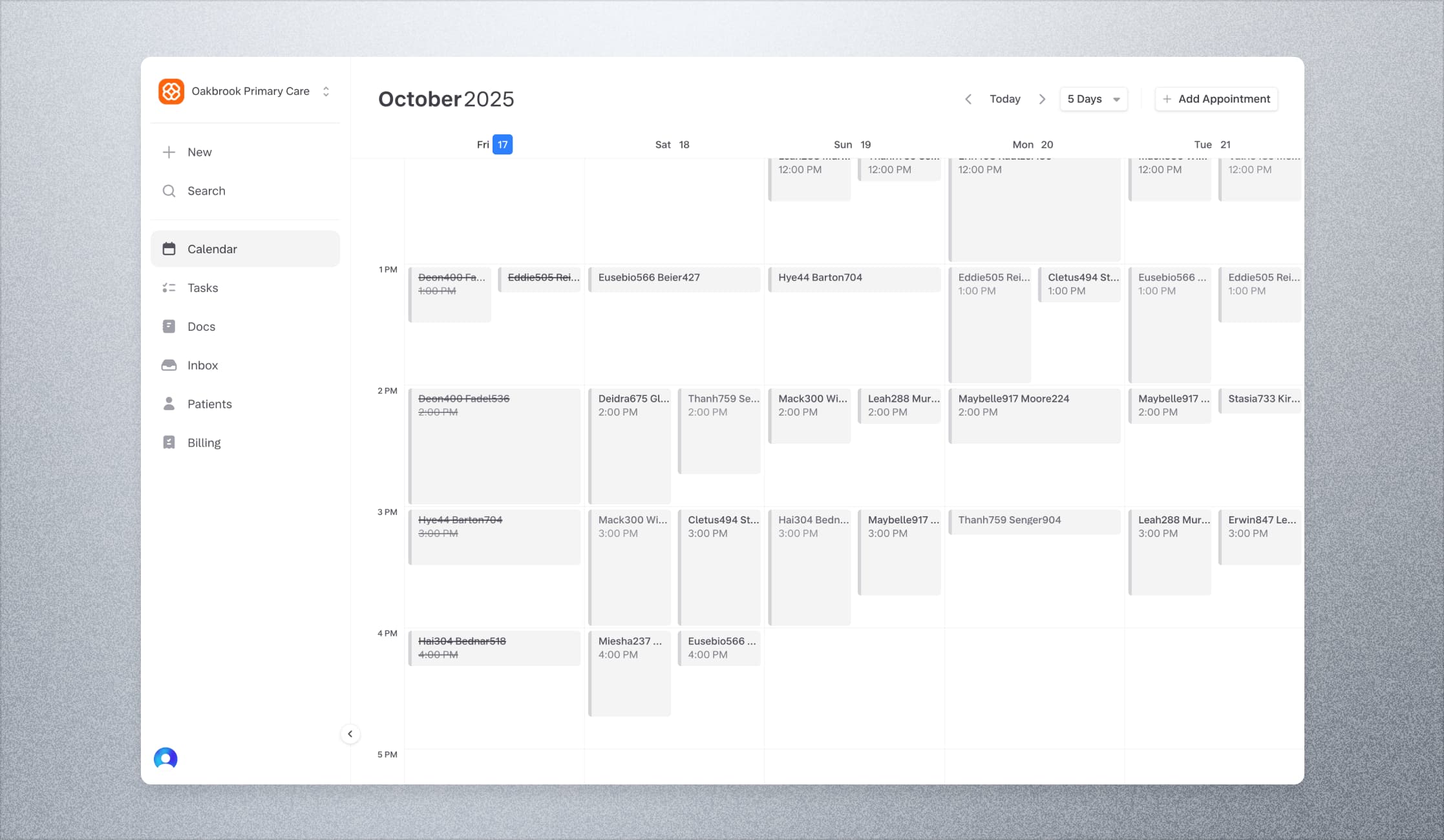
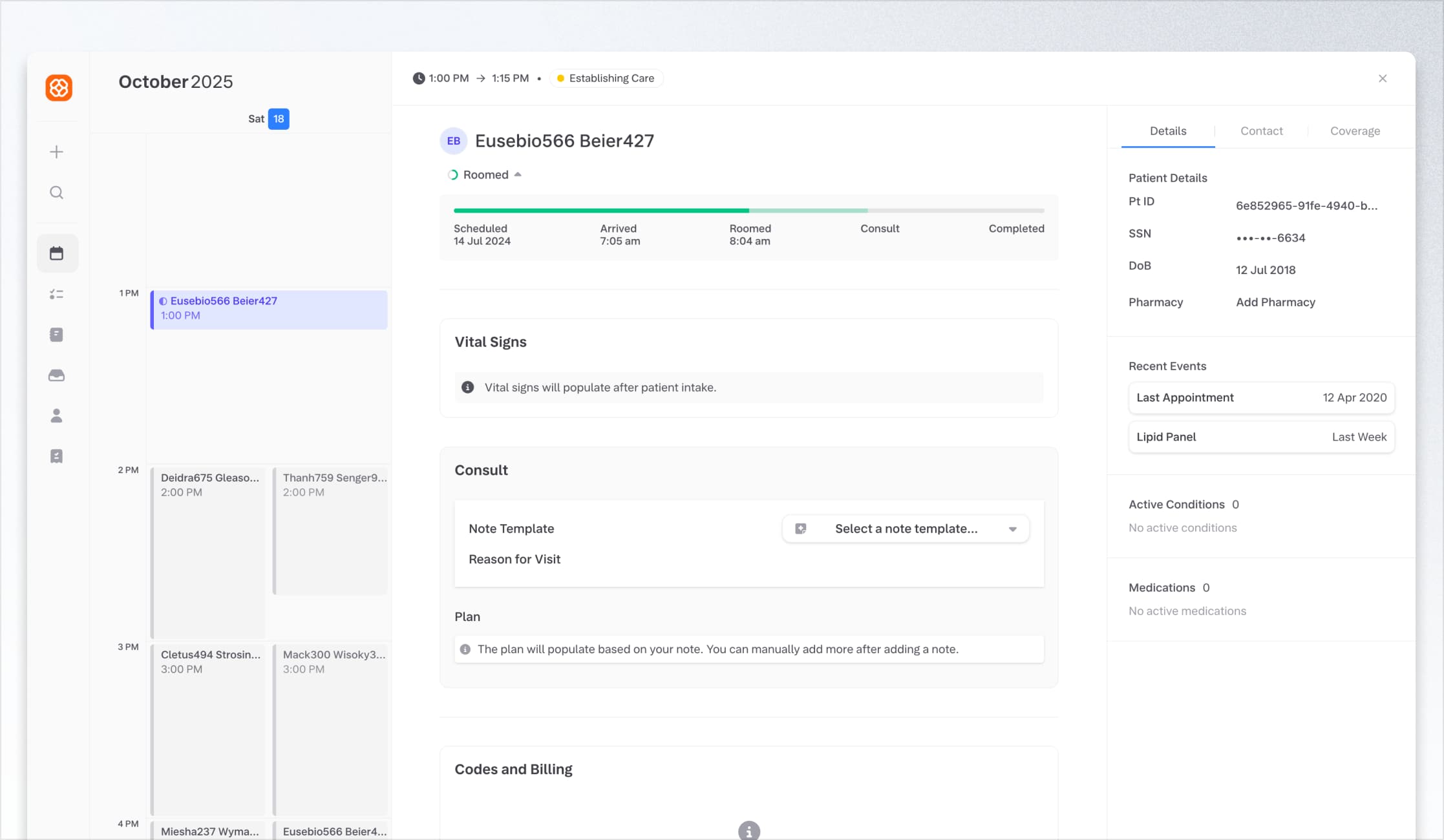
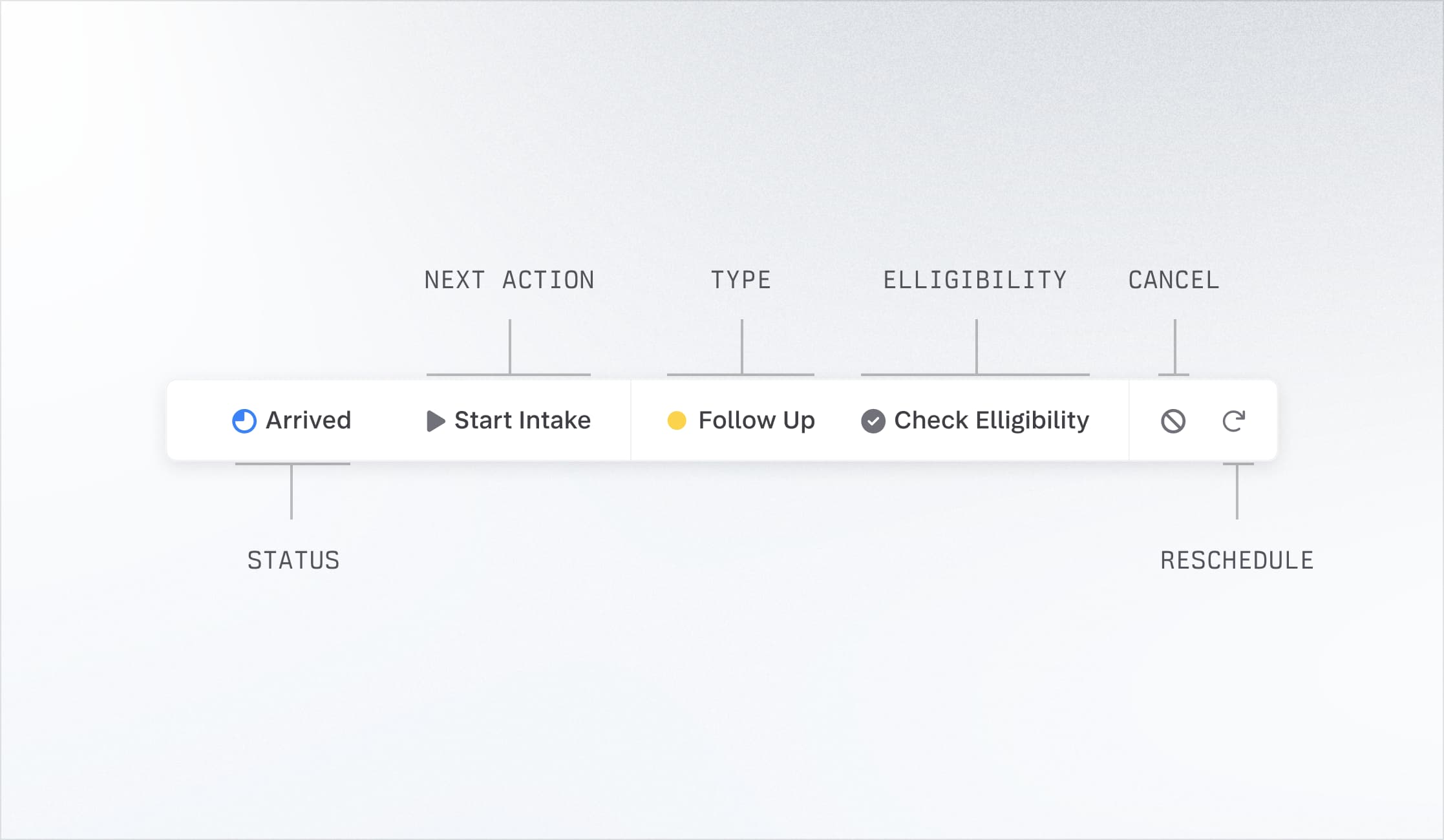
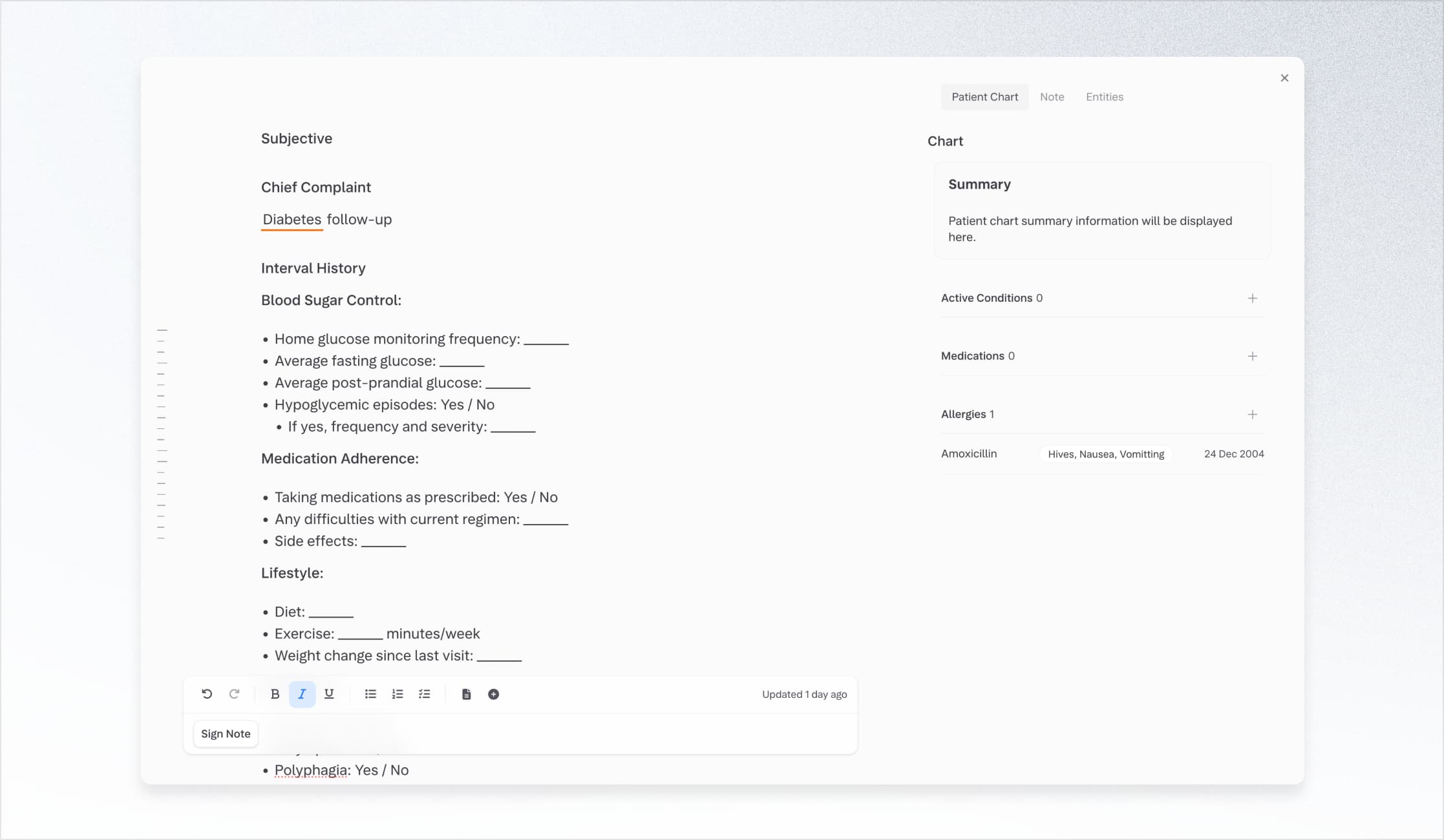
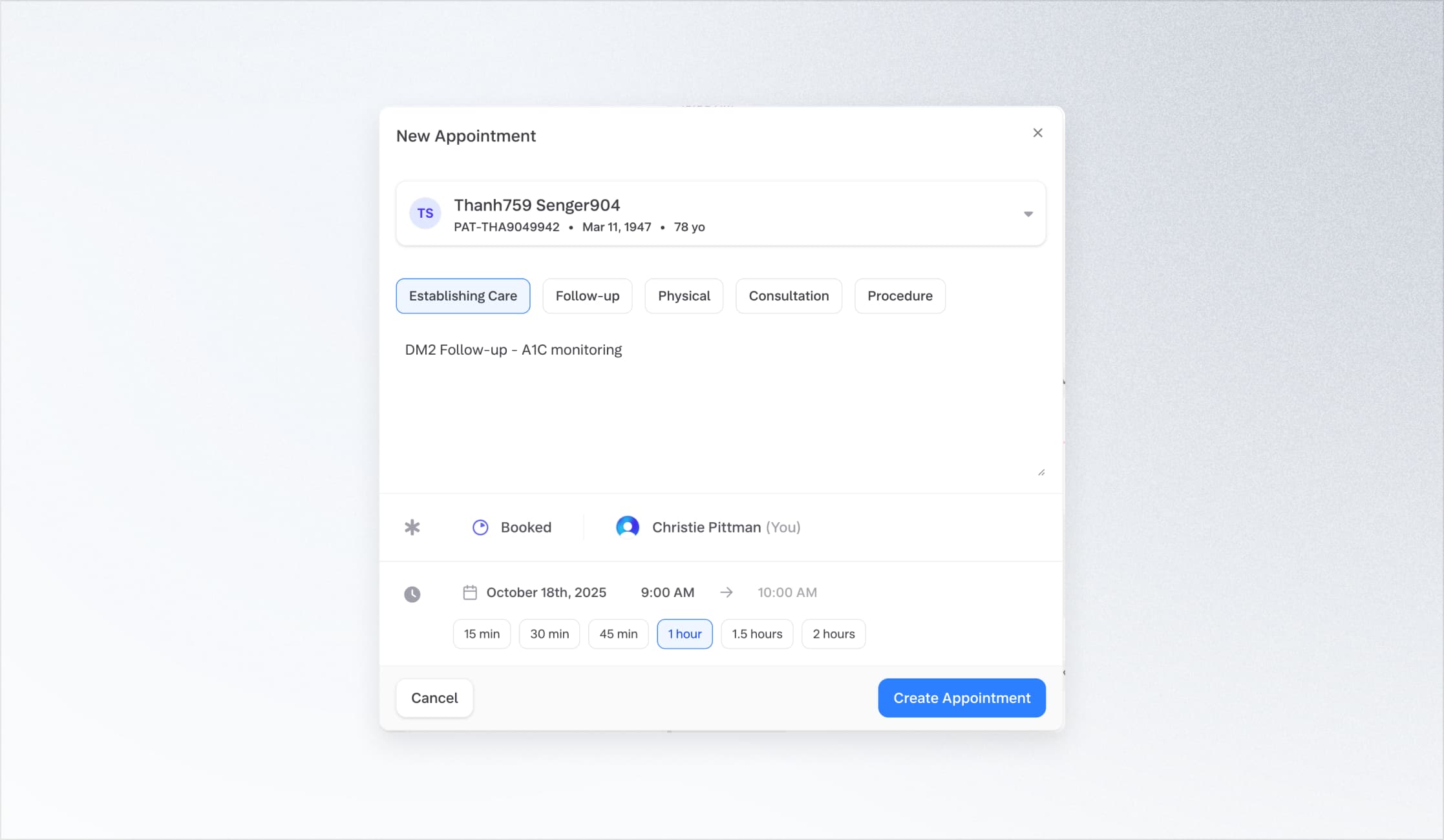
Tasks
Integrated across appointments, messages, and billing so nothing falls through the cracks.
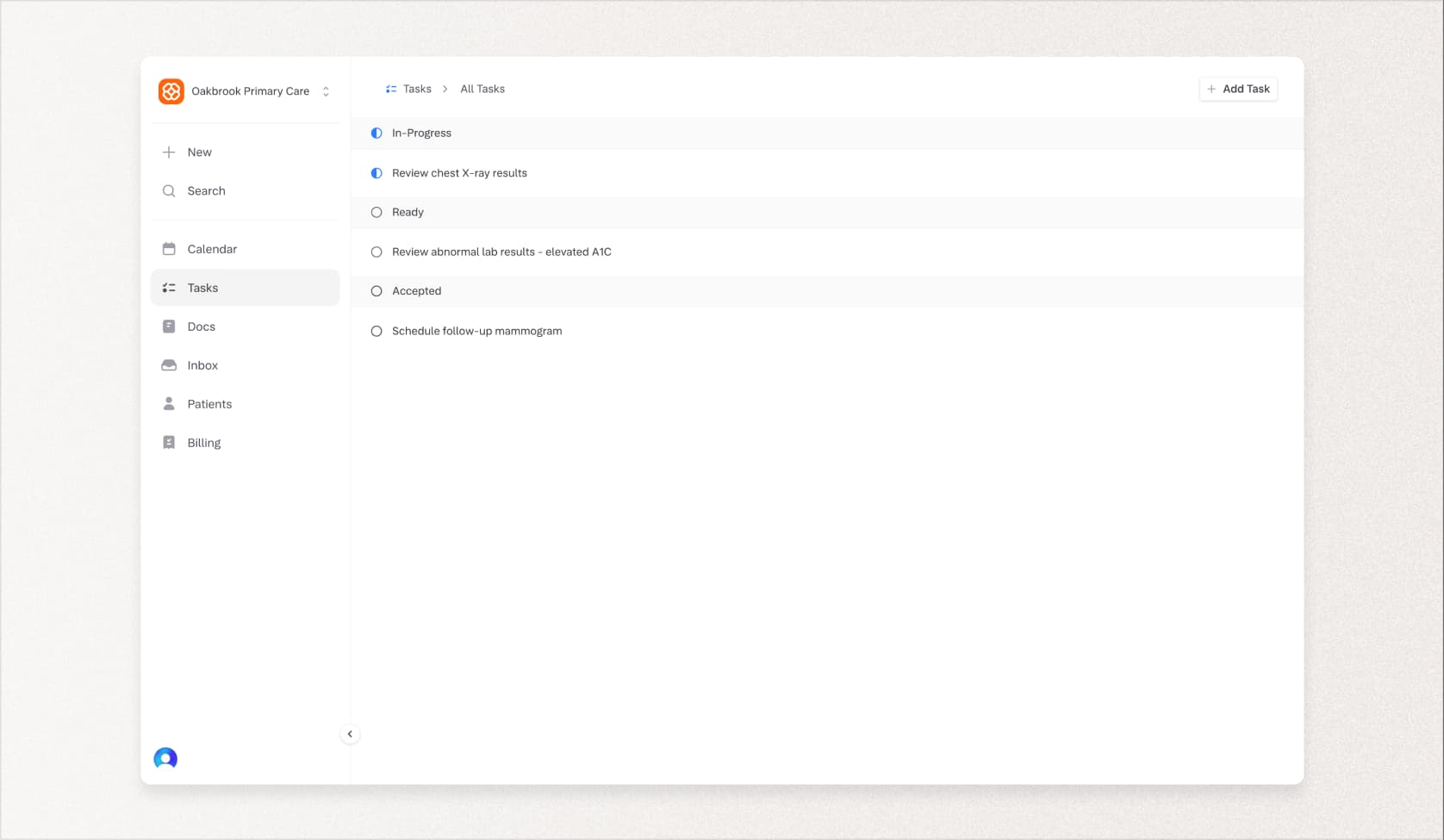
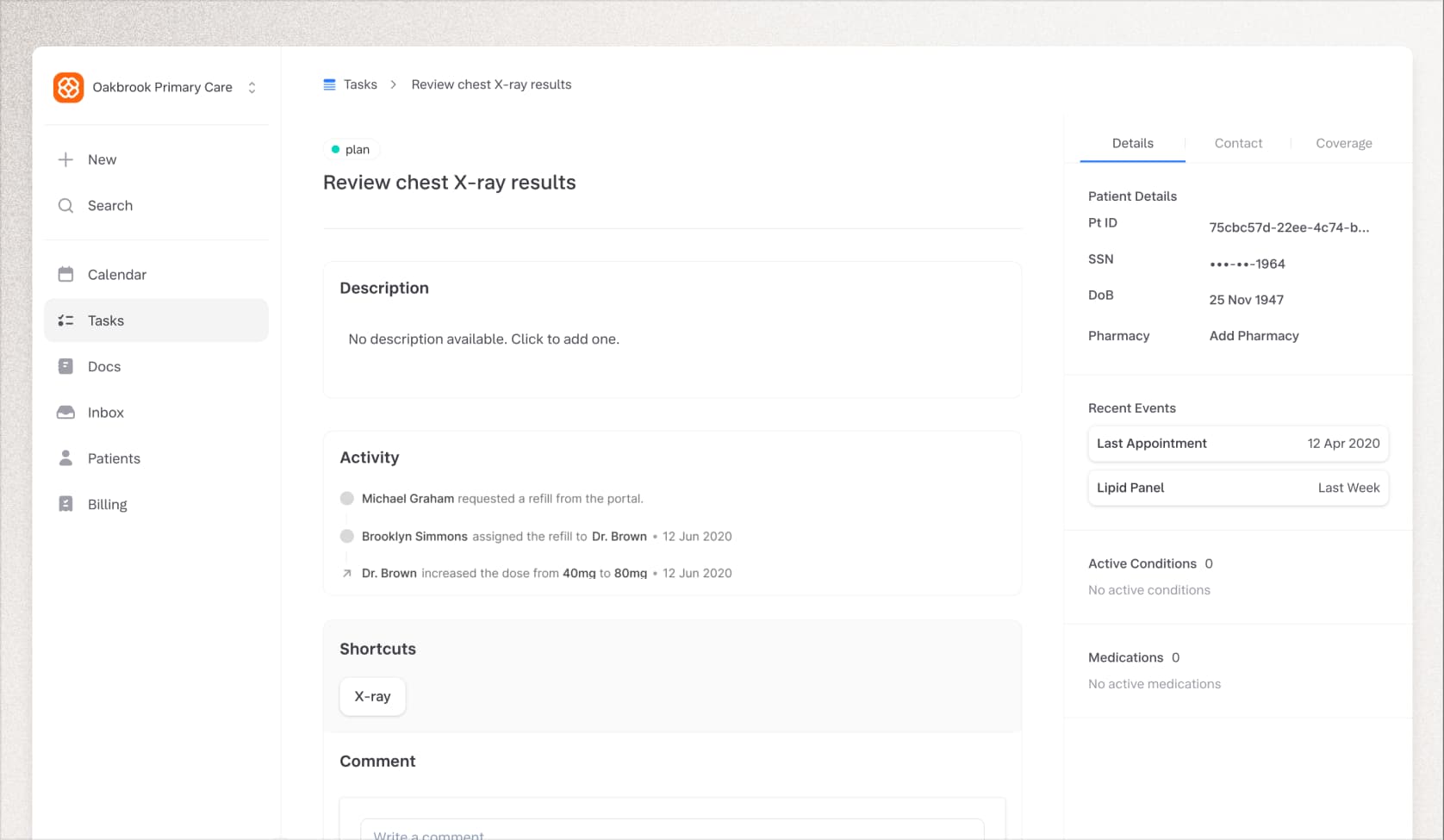
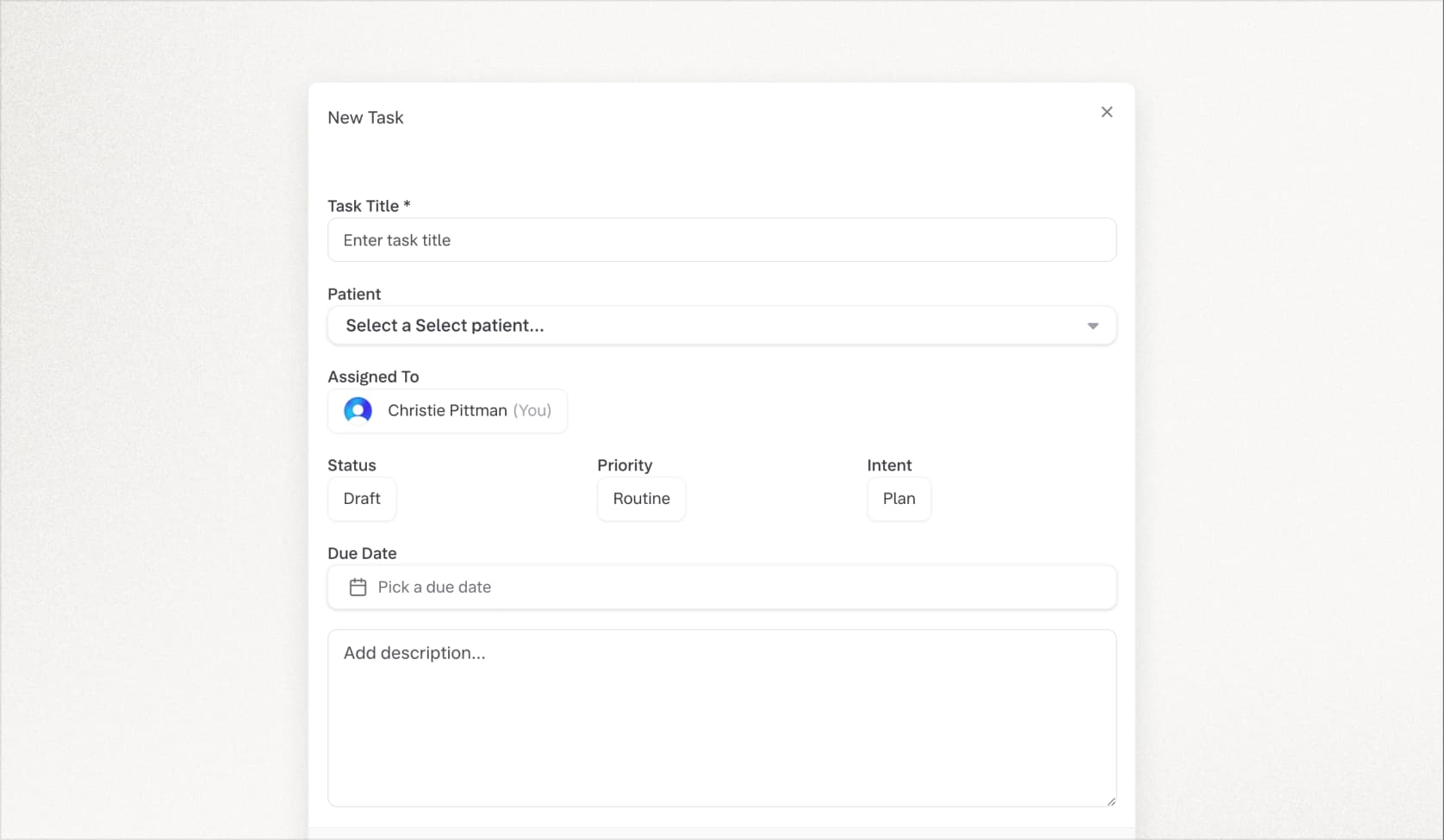
Documents
Ceramic built Google Docs for docs. A clean, intuitive block-based editor that can adapt to your workflow. Create a document in the templates folder and it's automatically available as a template throughout the system. Documents come powered with built-in context to help you fly through templates and create new documents with ease.
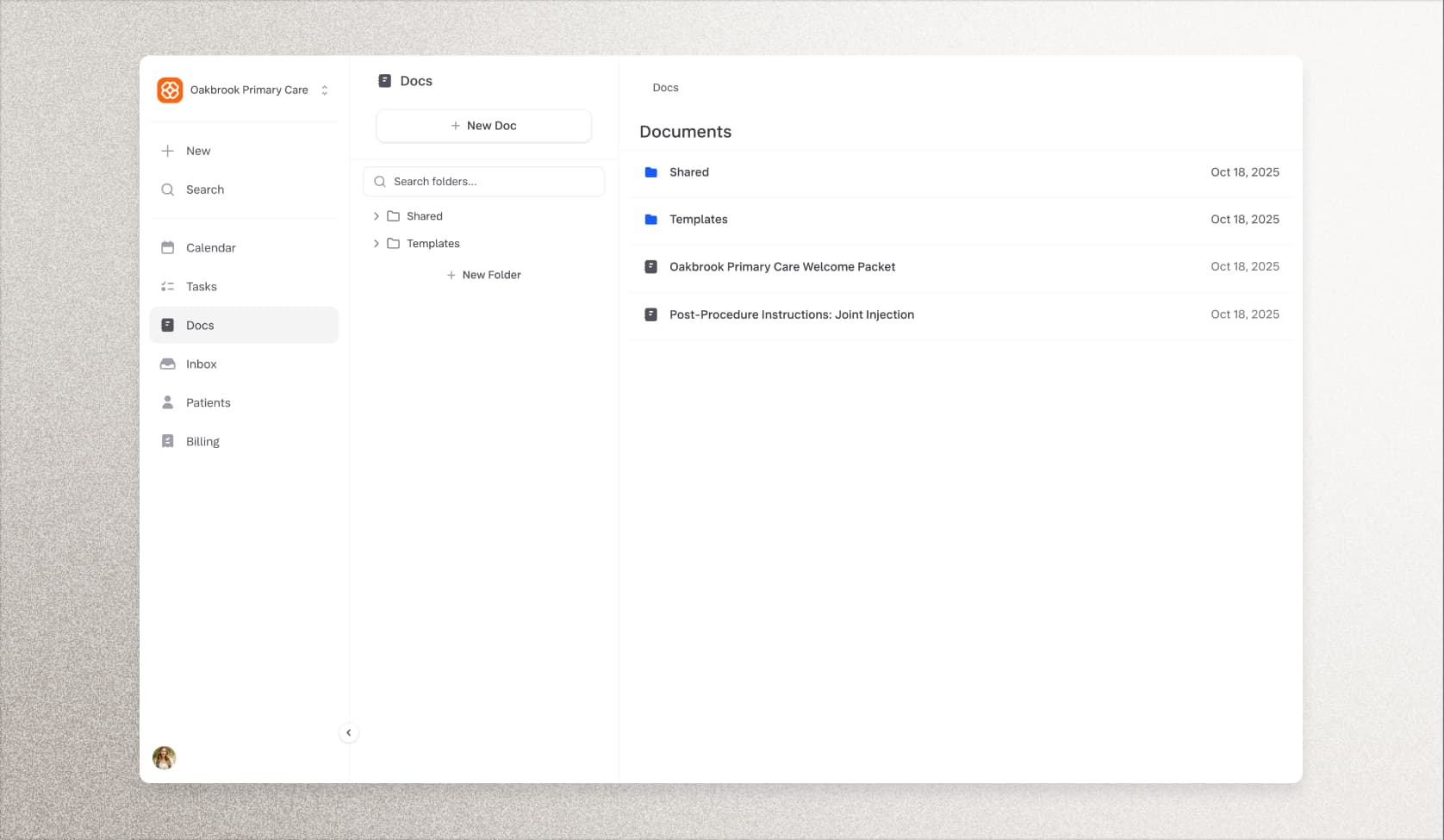
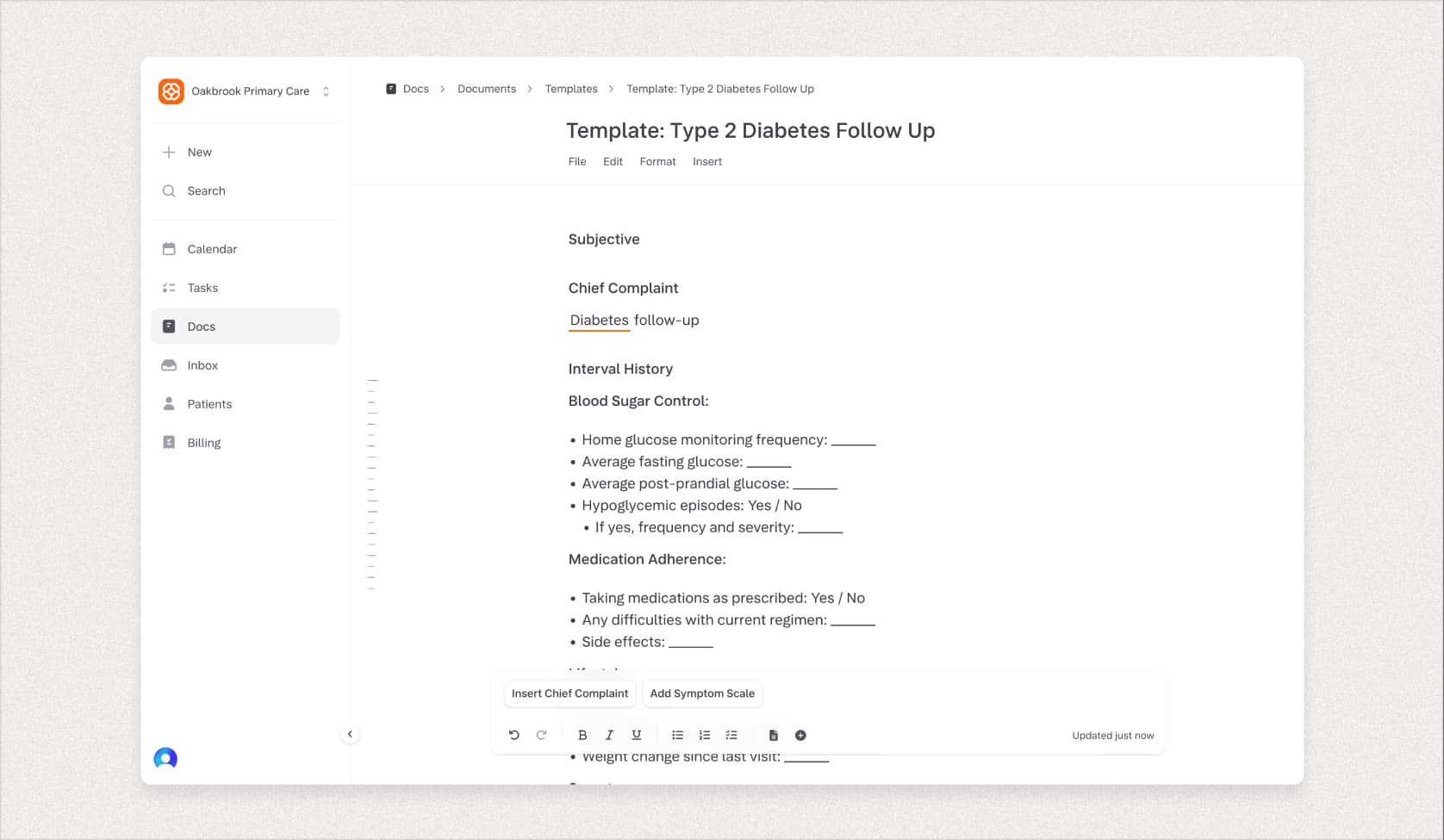
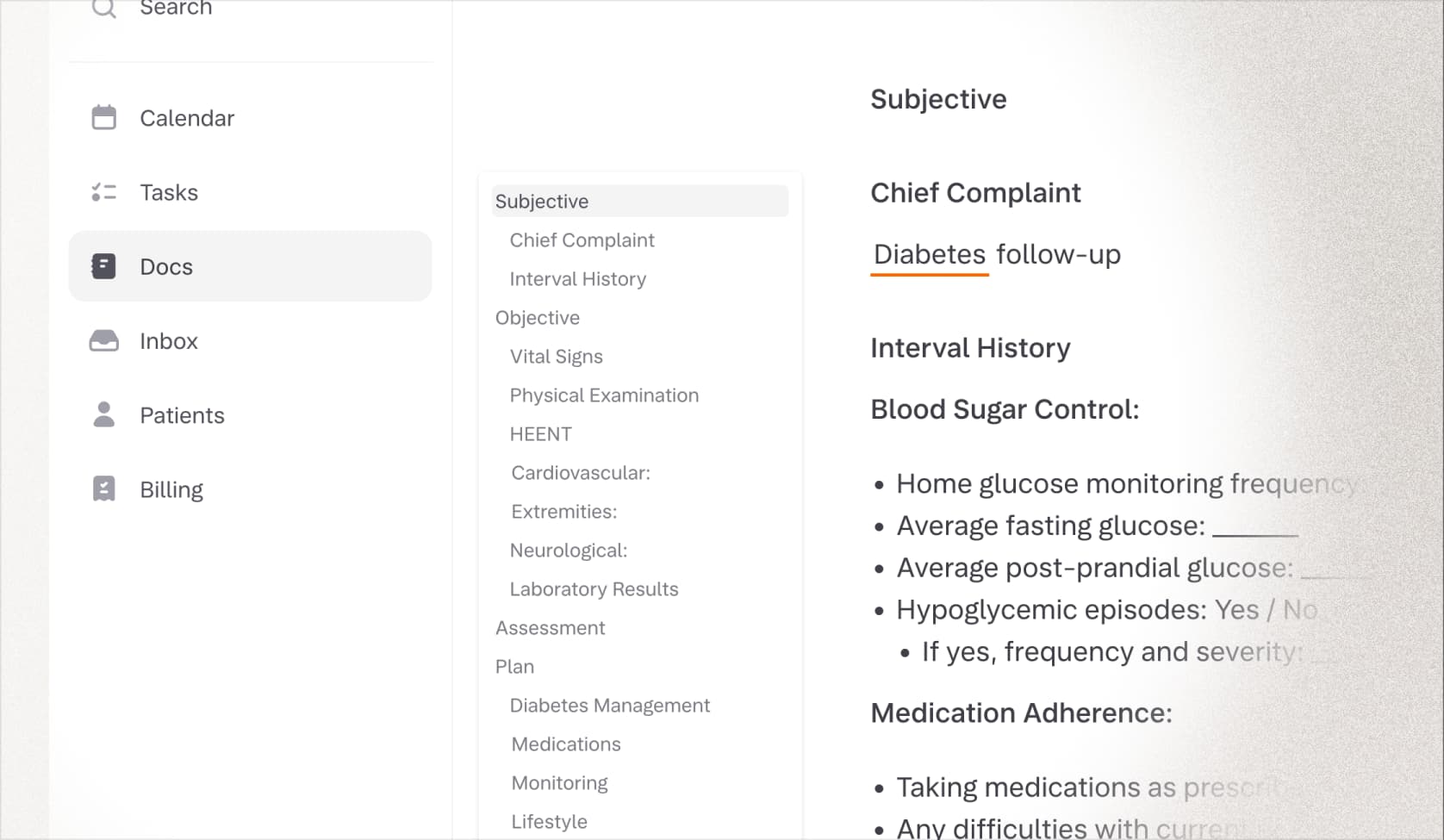
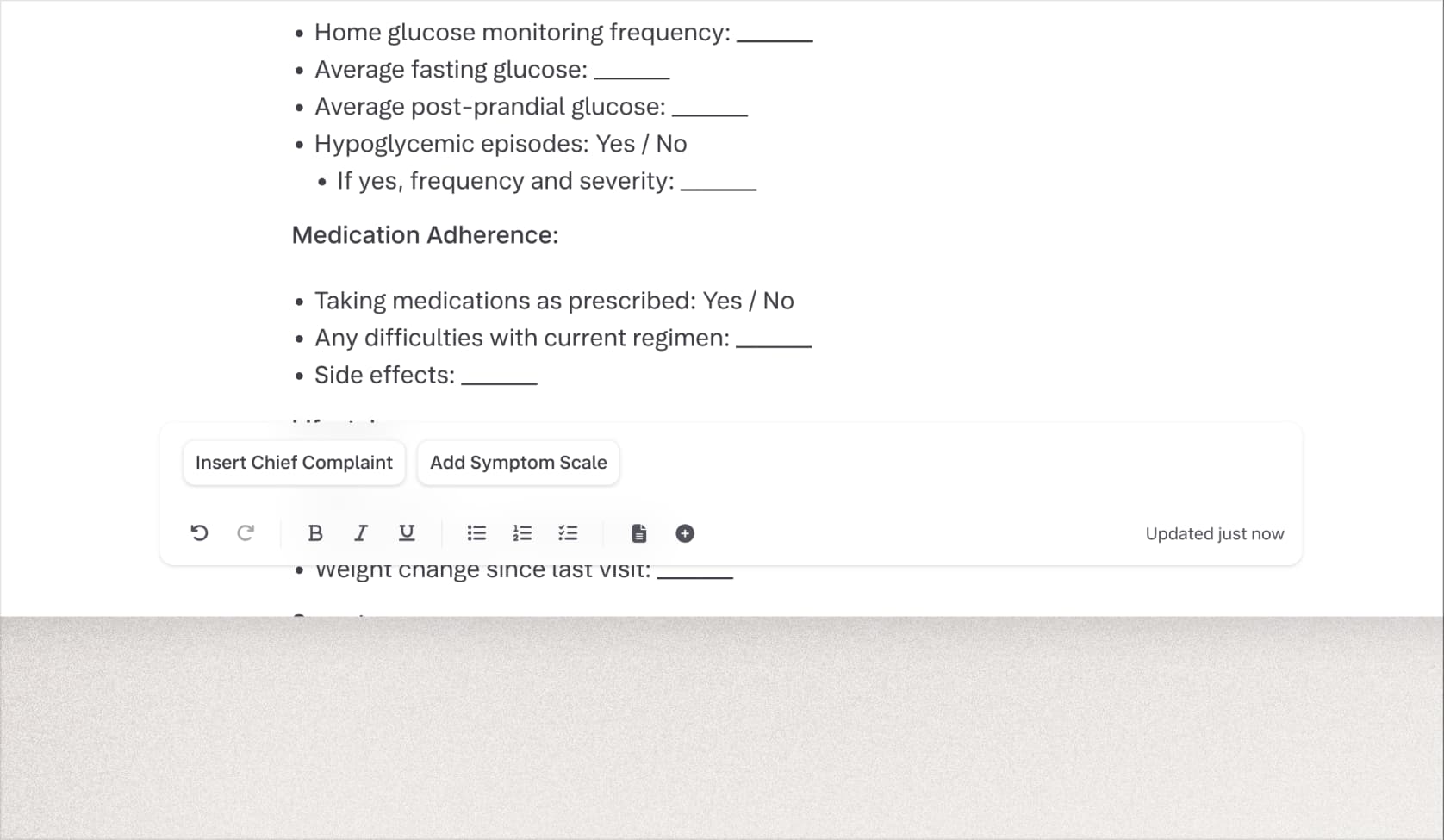
Messages In Development
Connected to patient context so you can see relevant information alongside your communications. Messages integrate with tasks and billing to keep everything in one place.
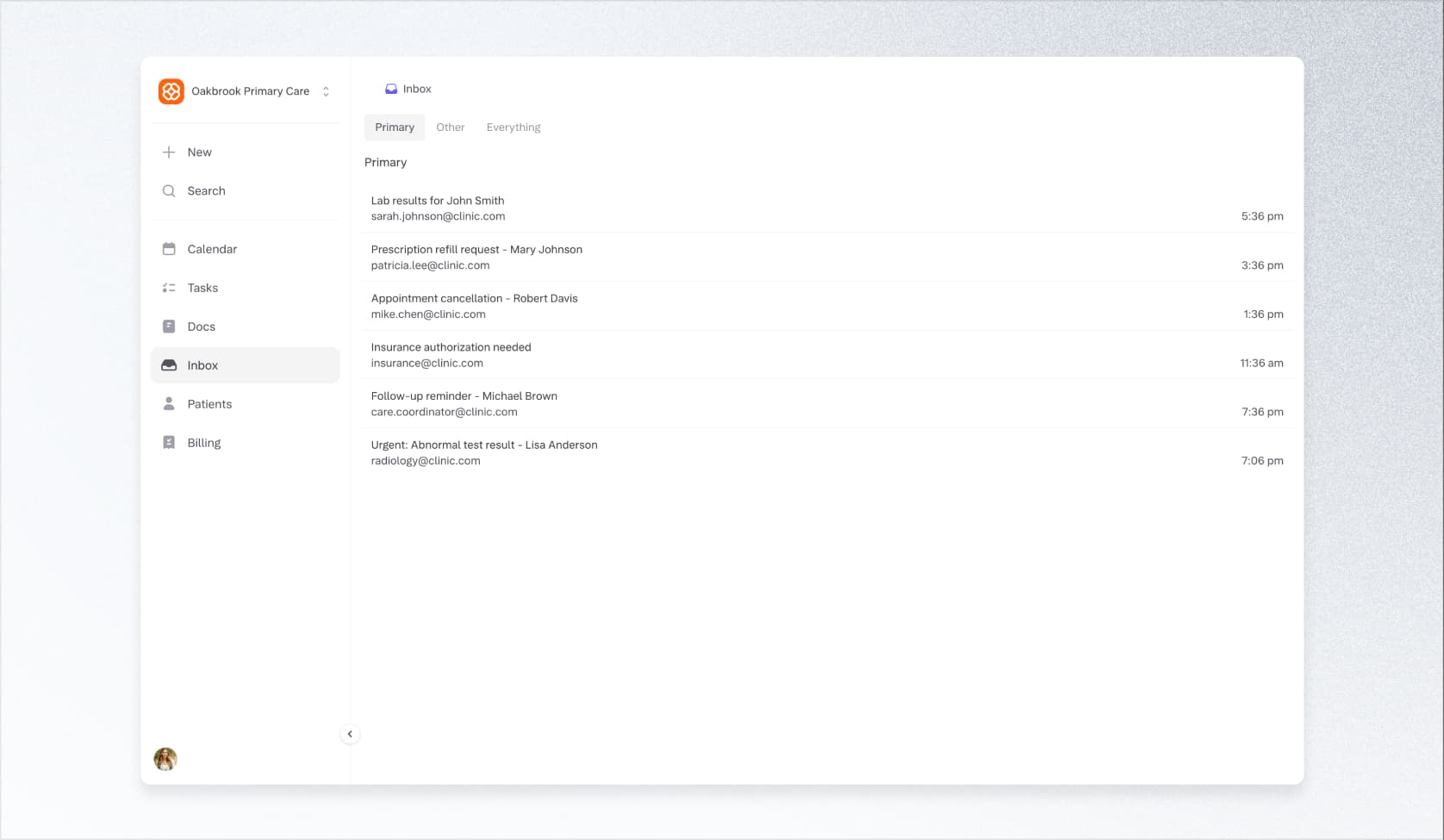
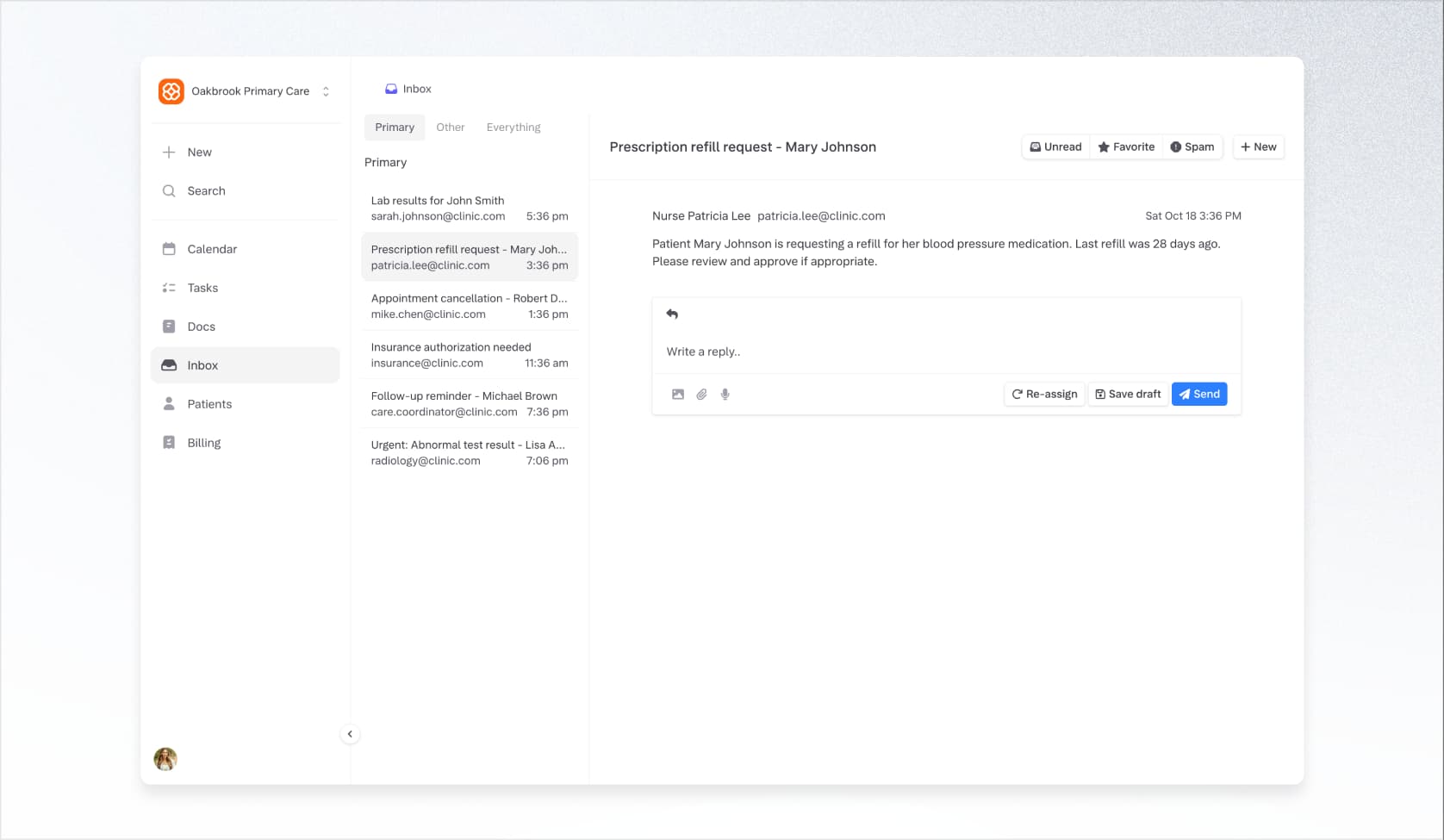
Patients In Development
Aggregate and display data in consistent ways, updating automatically based on appointments, messages, and tasks. Patient context follows you through the system so you always have the information you need.
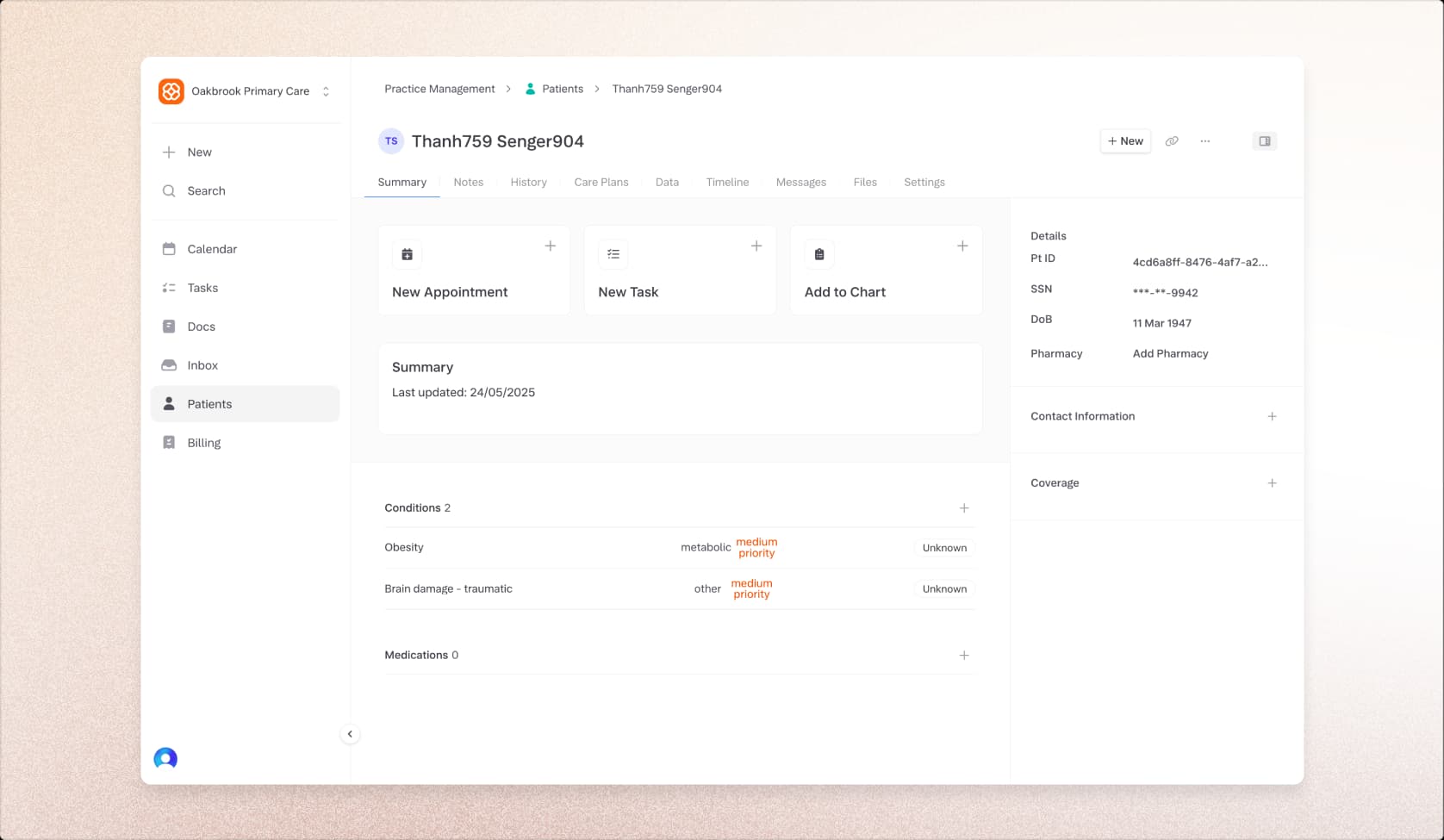
Simple, world-class design Cohesive, intuitive, and learnable
Good design isn't just aesthetics—it's about removing friction from your daily work. We've deliberately reduced the number of clicks needed to move between workflows and built interface elements that adapt to how you're working.
Interface elements that get out of the way
The sidebar navigation collapses when you don't need it. Views adapt to context—the calendar becomes a schedule when you're focused on today's appointments.
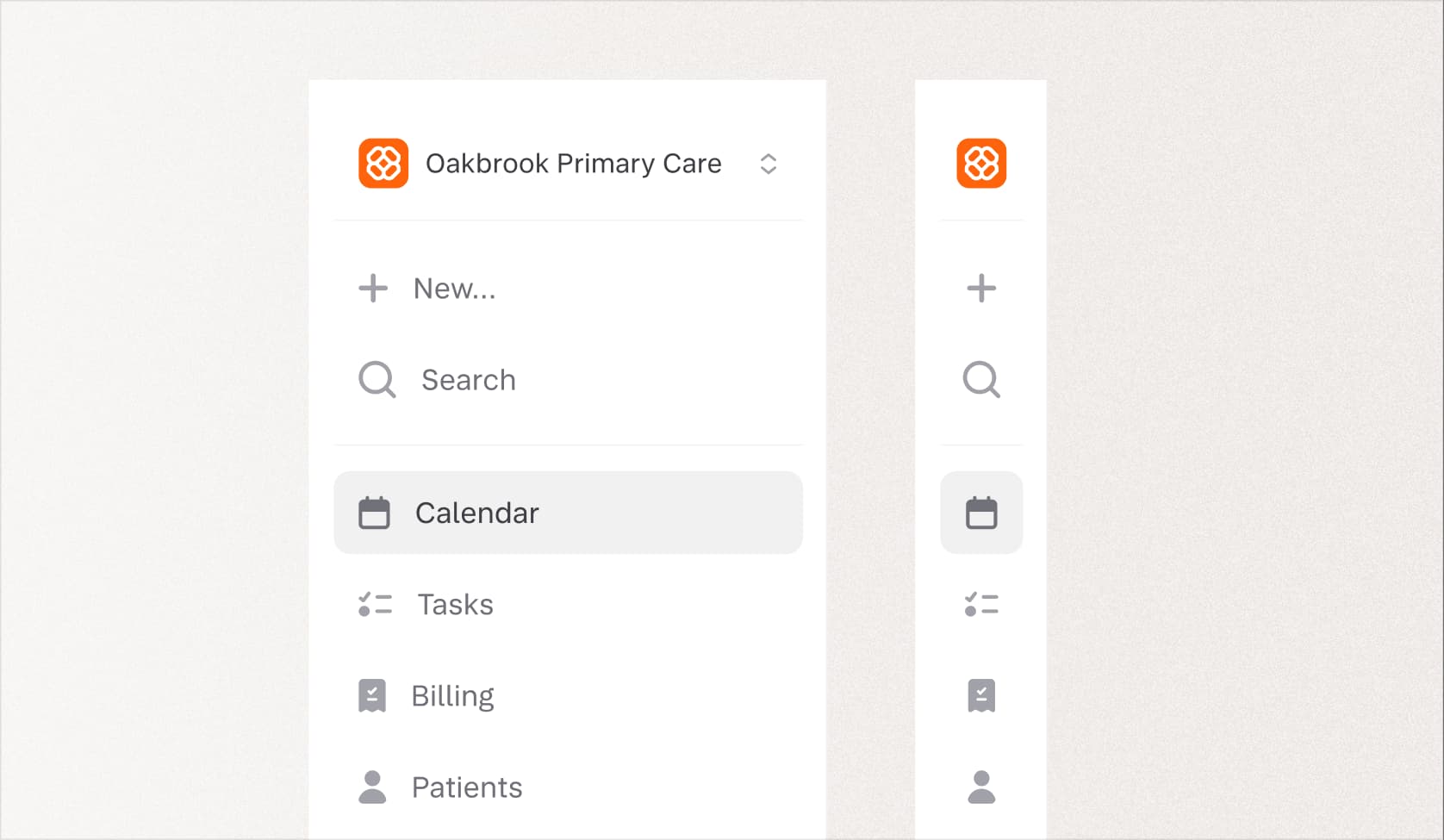
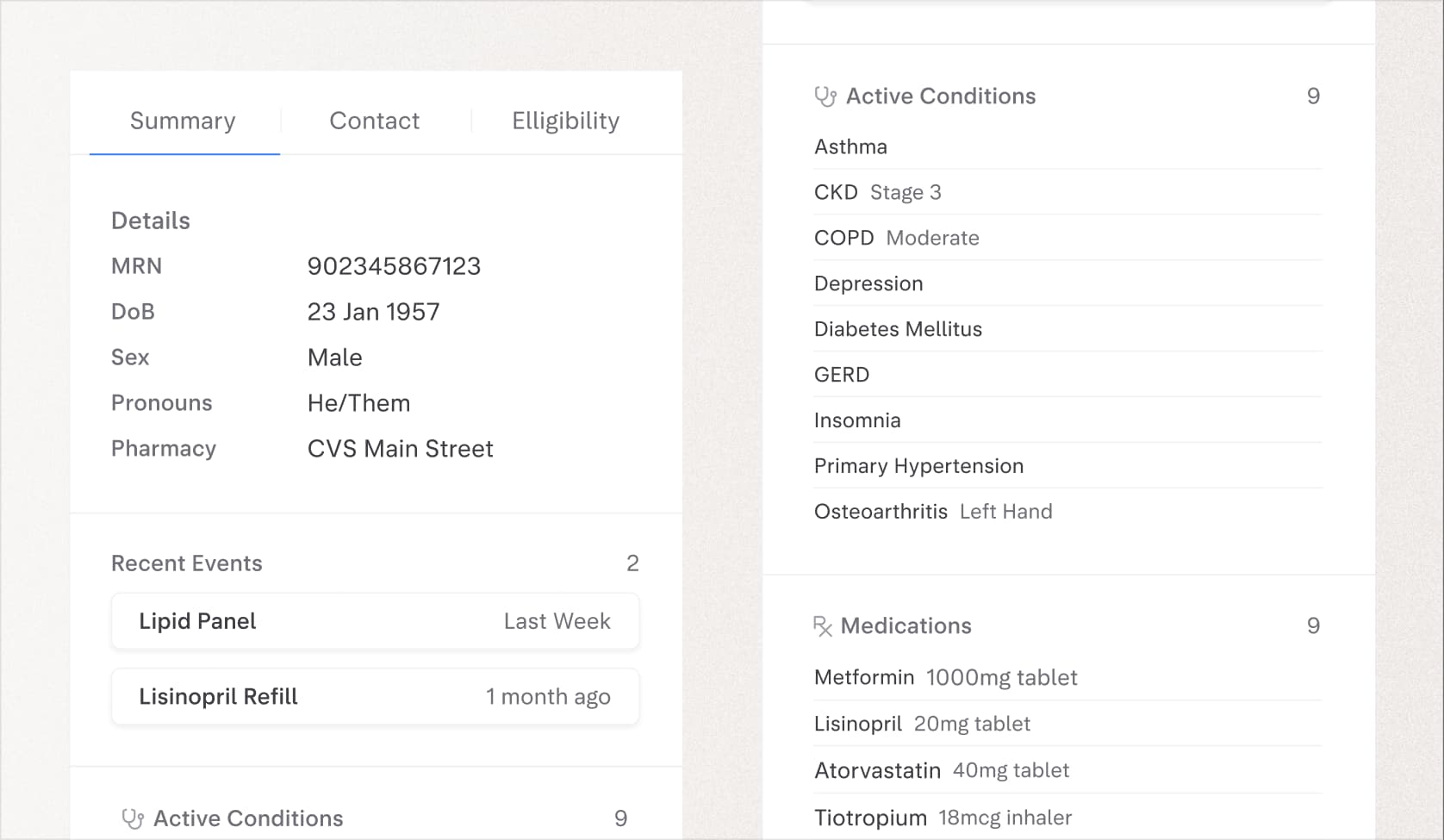
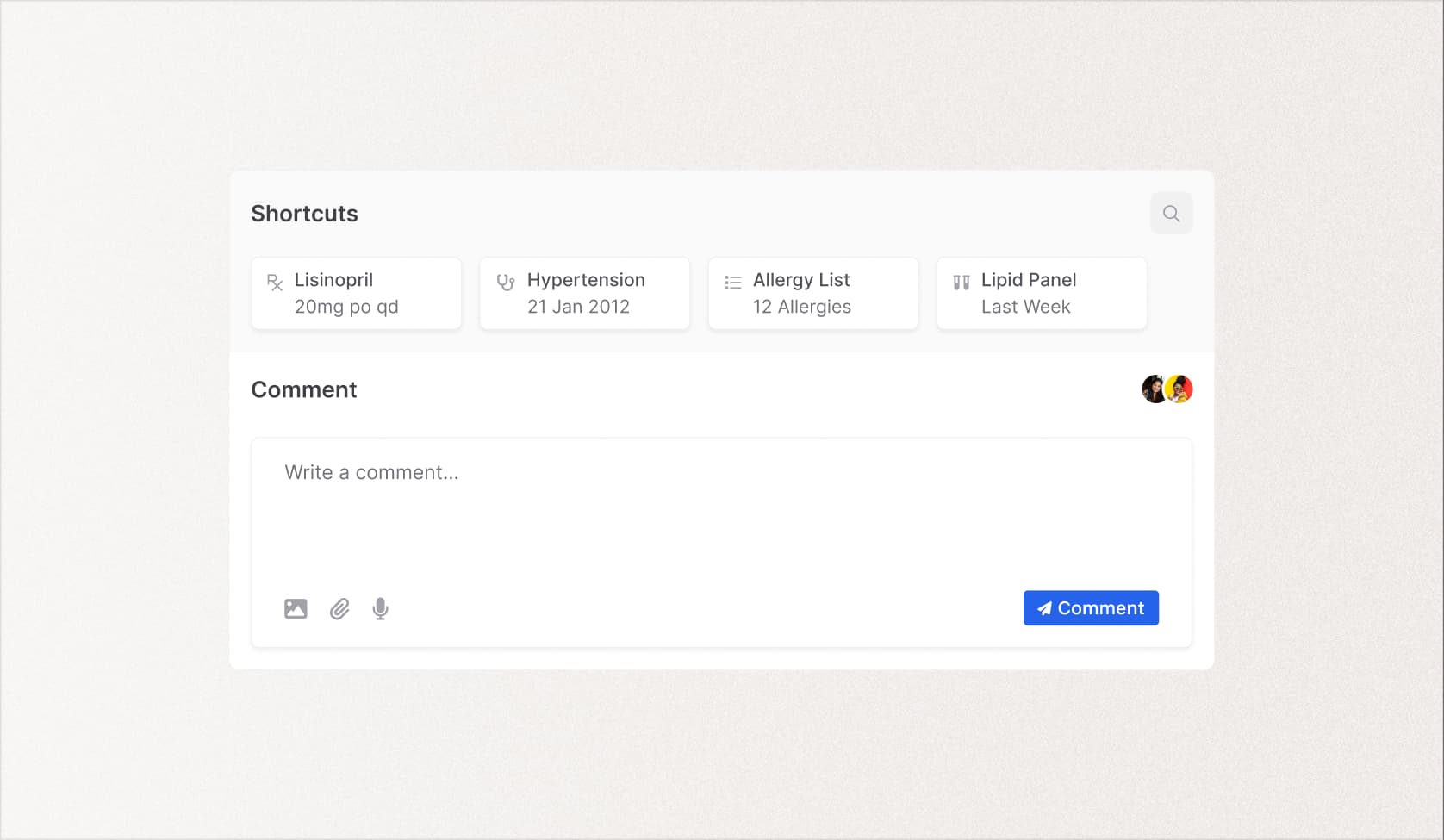
Smart defaults that just work
Creating a document in your templates folder automatically makes it available as a template system-wide. Billing codes you use frequently surface automatically. The system learns from your patterns without requiring explicit configuration.
Ceramic is built with modern technology HIPAA-ready, FHIR-based, and built for speed
During Early Access, Ceramic cannot be used for real patient care.
| HIPAA Control | Current Status |
|---|---|
| Unique User Identification | Clerk Identification and RLS Policies |
| Emergency Access | Planned (point-in-time database backups implemented) |
| Encryption and Decryption | TLS-1.3 Encryption for data in transit and AES-256 Encryption for data at rest |
| Secure Session Management | Implemented with Clerk JWTs. Automatic logoff planned. |
| Audit Logging | Deep Audit Logging with FHIR AuditEvent resources for all ePHI data access. |
| Data Standard | Implementation Status |
|---|---|
| FHIR R4 | Implemented |
| Terminology Services | Limited Support for ICD-10, SNOMED, HCPCS, and CPT |
Our Approach to Clinical Automation
We recognize the potential of AI and many other automations, however, we are taking a thoughtful approach to enhancing clinical workflows. We are starting with the core workflows that make up the core of the clinician's day.
We recognize that automation can be a double-edged sword, and we're committed to ensuring that the automation we build is always in service of the clinician and the patient. Much of the automation we have built is very very rudimentary and meant to inform how to implement more advanced and sophisticated automations.
Automated clinical documentation and charge capture In Development
Bills are automatically generated after notes are signed. We're building natural language processing to extract diagnoses, procedures, and billing codes directly from clinical documentation—reducing manual coding work and ensuring accurate charge capture.
Early Access
Ceramic is still under active development. Your interest, enthusiasm, and feedback will help us build a world-class EMR with the best user experience for clinical teams.
Our goal is to create the easiest to use EMR for clinicians. We see that goal being possible by doing a few things really, really well.
- The best experience for working with clinical, administrative, and RCM data and primitives – appointments, documents, bills, messages, tasks, etc
- Customizable workflows that connect the primitives together
- Consistent, learnable patterns throughout the entire product surface
- Relentless pursuit for physician feedback via user testing, interviews, and (when possible) shadowing